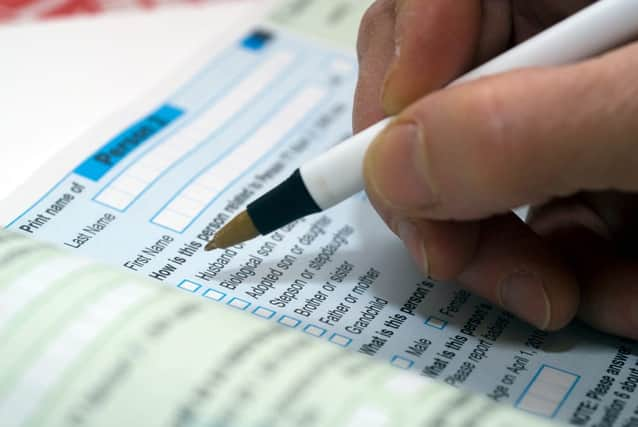Here's why the 2021 census could be the last one England and Wales ever have to fill out


It's been revealed that the 2021 census could be the last that the public of England and Wales ever has to fill out.
The news comes as the country's leading statistician looks at ways of possibly replacing the once-in-a-decade survey with a cheaper and more effective option.
Advertisement
Hide AdAdvertisement
Hide AdEven though most people will be expected to complete their forms online, the price tag is almost the double the last census in 2011.
Professor Sir Ian Diamond, the UK's National Statistician, is reportedly exploring whether the data typically collected in the compulsory census could be gathered from other sources including the Ordnance Survey, GP registrations, council tax records and driving licences.
Here's everything you need to know about it:
Why would the census be stopped?
Next year's survey, which seeks to provide an accurate snapshot of society by asking the public questions about themselves, their household and home, is likely to cost close to £1bn, according to The Guardian.
"The major arguments made against the Census in its current form have broadly clustered around two main issues: high, and constantly rising costs; and the infrequency of data collection in an environment of accelerated demographic change," the NatCen Social Research institute said previously.
Advertisement
Hide AdAdvertisement
Hide AdHowever, the census is considered by demographers as the "gold standard" of population records.
Sir Ian has said he would only recommend replacing the next census if he finds a suitably "better" option.
"I will only make a recommendation to change the way we do things if we can replicate the richness of the census data," said Sir Ian, who took up the statistician role in October 2019.
Sir Ian said he would look at the evidence and give an opinion on the next census by 2023. It is ultimately for the Government to decide.
What is the census?
Advertisement
Hide AdAdvertisement
Hide AdThe census is a survey that the population must fill out every 10 years.
It provides valuable information about the population to help councils and the Government plan services. These might relate to schools, libraries, doctors' surgeries and roads, as well as jobs and training policies.
Each census is kept secure for 100 years but after a century, the data is released to members of the public who can use the information to trace their family history.
In England and Wales the census is run by the Office for National Statistics (ONS). North of the border, National Records of Scotland takes charge while in Northern Ireland the survey is organised by the Northern Ireland Statistics and Research Agency.
Advertisement
Hide AdAdvertisement
Hide AdThe 2021 census will be the first to be carried out primarily online.
In 2011, all households received the census questionnaire through the post, and once the 56 questions were completed, households were required to return it by post, although there was an option to fill out the form online.
What is the history of the census?
The first census of the population, according to the ONS, can be traced back to 1801 but the first modern census is considered to be the survey of 1841.
"Some 35,000 enumerators (all men) armed with pencils delivered a separate form to each household, recording almost 16 million people in England and Wales. People completed the forms themselves, a real challenge for some since at this time many people could not read or write," said the ONS.
Advertisement
Hide AdAdvertisement
Hide AdIn 1841, the most popular occupation was "domestic servant". The census found that almost a quarter of a million people worked in cotton manufacture, and that there were 571 fork-makers, 74 leech bleeders and five ice dealers.
This article originally appeared on iNews